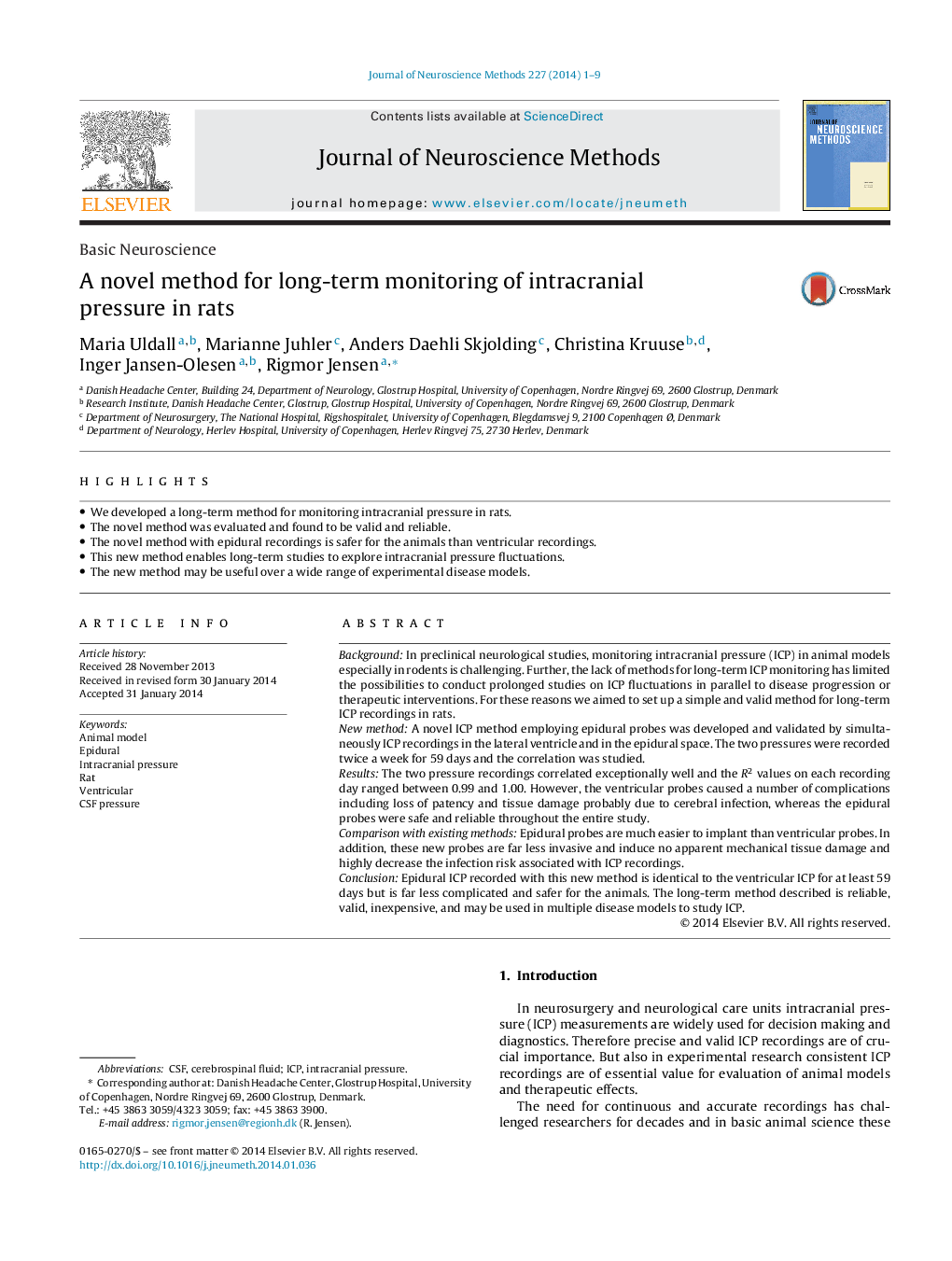| Article ID | Journal | Published Year | Pages | File Type |
|---|---|---|---|---|
| 6268760 | Journal of Neuroscience Methods | 2014 | 9 Pages |
â¢We developed a long-term method for monitoring intracranial pressure in rats.â¢The novel method was evaluated and found to be valid and reliable.â¢The novel method with epidural recordings is safer for the animals than ventricular recordings.â¢This new method enables long-term studies to explore intracranial pressure fluctuations.â¢The new method may be useful over a wide range of experimental disease models.
BackgroundIn preclinical neurological studies, monitoring intracranial pressure (ICP) in animal models especially in rodents is challenging. Further, the lack of methods for long-term ICP monitoring has limited the possibilities to conduct prolonged studies on ICP fluctuations in parallel to disease progression or therapeutic interventions. For these reasons we aimed to set up a simple and valid method for long-term ICP recordings in rats.New methodA novel ICP method employing epidural probes was developed and validated by simultaneously ICP recordings in the lateral ventricle and in the epidural space. The two pressures were recorded twice a week for 59 days and the correlation was studied.ResultsThe two pressure recordings correlated exceptionally well and the R2 values on each recording day ranged between 0.99 and 1.00. However, the ventricular probes caused a number of complications including loss of patency and tissue damage probably due to cerebral infection, whereas the epidural probes were safe and reliable throughout the entire study.Comparison with existing methodsEpidural probes are much easier to implant than ventricular probes. In addition, these new probes are far less invasive and induce no apparent mechanical tissue damage and highly decrease the infection risk associated with ICP recordings.ConclusionEpidural ICP recorded with this new method is identical to the ventricular ICP for at least 59 days but is far less complicated and safer for the animals. The long-term method described is reliable, valid, inexpensive, and may be used in multiple disease models to study ICP.
